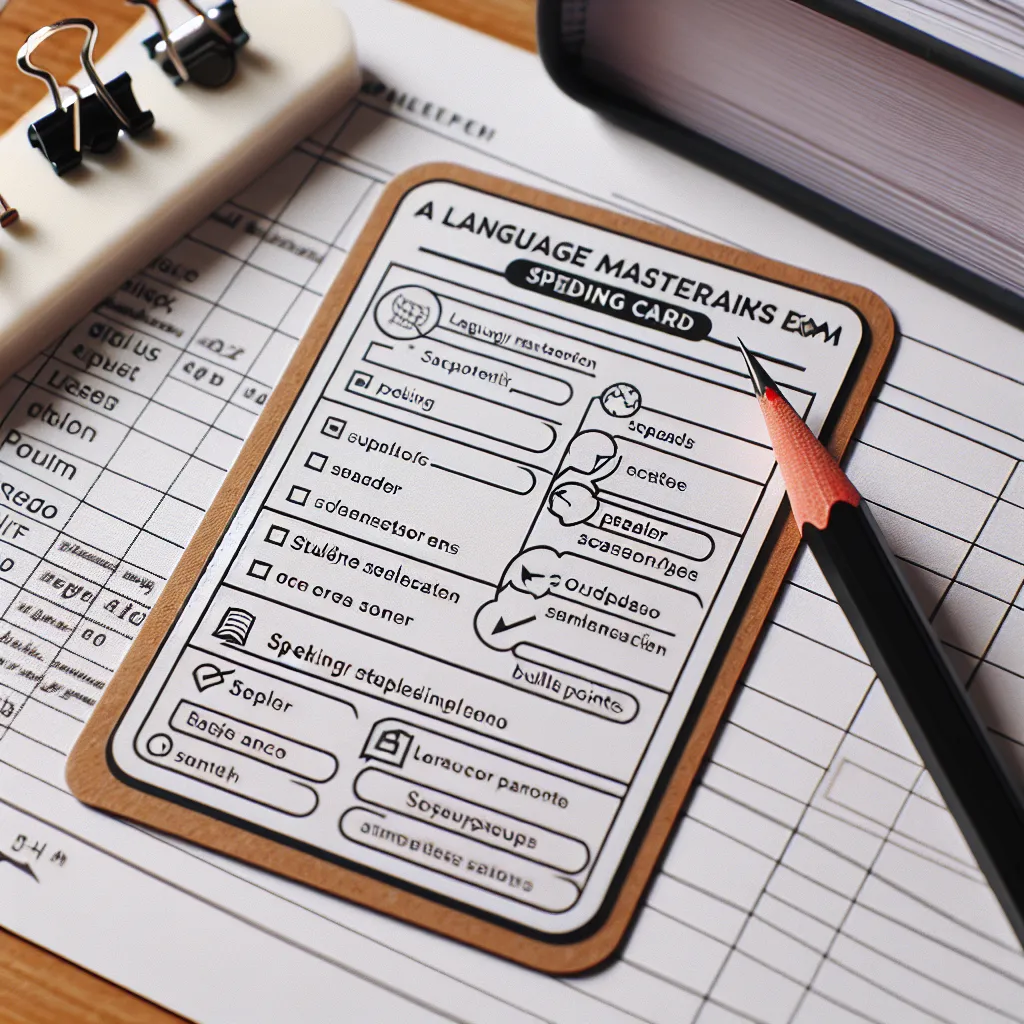Are you preparing for the IELTS exam and wondering about the Speaking section, particularly Part 2? You’re not alone. Many test-takers find this part challenging, but with the right understanding and preparation, you can excel. In this comprehensive guide, we’ll explore what IELTS Speaking Part 2 is like, how it’s structured, and provide valuable tips to help you succeed.
Understanding IELTS Speaking Part 2
IELTS Speaking Part 2, often referred to as the “long turn” or “cue card task,” is a crucial component of the Speaking test. It’s designed to assess your ability to speak at length on a given topic, demonstrating your English language skills in a more extended format.
Structure and Format
In this part of the test:
- You’ll receive a task card with a topic and specific points to address.
- You’ll have one minute to prepare your response.
- You’ll then speak for 1-2 minutes on the given topic.
- The examiner may ask one or two follow-up questions after you finish speaking.
 IELTS Speaking Part 2 Task Card
IELTS Speaking Part 2 Task Card
Common Topics
IELTS Speaking Part 2 covers a wide range of subjects, typically including:
- Personal experiences
- Memorable events
- Favorite objects or places
- People you admire
- Hobbies and interests
- Future plans and aspirations
How to Approach IELTS Speaking Part 2
1. Understand the Task Card
When you receive the task card:
- Read it carefully
- Identify the main topic
- Note the specific points you need to address
Example task card:
Describe a book you have recently read.
You should say:
- What the book was about
- Why you chose to read it
- How you felt about it
And explain whether you would recommend it to others.
2. Use Your Preparation Time Wisely
During the one-minute preparation time:
- Quickly jot down key points
- Organize your thoughts
- Think of relevant vocabulary and examples
3. Structure Your Response
A well-structured response typically includes:
- An introduction (what the topic is about)
- Main body (addressing the points on the card)
- A conclusion (summarizing your thoughts)
4. Speak Naturally and Fluently
- Aim for a conversational tone
- Use a variety of vocabulary and sentence structures
- Include personal experiences or opinions where relevant
Key Skills to Develop for IELTS Speaking Part 2
1. Time Management
Practice speaking for the full 2 minutes without running out of things to say or finishing too early.
2. Vocabulary Enhancement
Expand your vocabulary, especially with descriptive words and phrases relevant to common IELTS topics.
3. Coherence and Cohesion
Use linking words and phrases to connect your ideas smoothly.
Example: “Firstly… Moreover… In conclusion…”
4. Fluency and Pronunciation
Work on speaking clearly and confidently, with natural intonation and stress patterns.
 IELTS Candidate Speaking
IELTS Candidate Speaking
Common Challenges and How to Overcome Them
1. Nervousness
- Practice deep breathing exercises before the test
- Remember that the examiner is there to listen, not to judge
2. Running Out of Ideas
- Develop the habit of elaborating on your points
- Use the “why, what, how” technique to expand your answers
3. Limited Vocabulary
- Read widely on various topics
- Learn synonyms and alternative expressions for common words
4. Lack of Confidence
- Record yourself speaking and listen back to identify areas for improvement
- Practice with friends or language exchange partners
Preparation Strategies for IELTS Speaking Part 2
-
Regular Practice: Set aside time each day to practice speaking on various topics.
-
Mock Tests: Take mock IELTS Speaking tests to familiarize yourself with the format and timing.
-
Topic Research: Stay informed about current affairs and general knowledge topics.
-
Feedback Seeking: Ask for constructive criticism from teachers or study partners.
-
Self-Recording: Record your practice sessions to analyze your performance and track improvement.
Conclusion
IELTS Speaking Part 2 is a unique challenge that tests your ability to speak at length on a given topic. By understanding its structure, practicing regularly, and developing key skills, you can approach this part of the test with confidence. Remember, the key to success lies in preparation and staying calm during the test. With these insights and strategies, you’re now better equipped to tackle IELTS Speaking Part 2. Keep practicing, stay positive, and you’ll be well on your way to achieving your desired IELTS score.
Do you have any specific questions about IELTS Speaking Part 2? Feel free to ask in the comments below, and don’t forget to check out our other IELTS preparation resources for comprehensive exam guidance.


